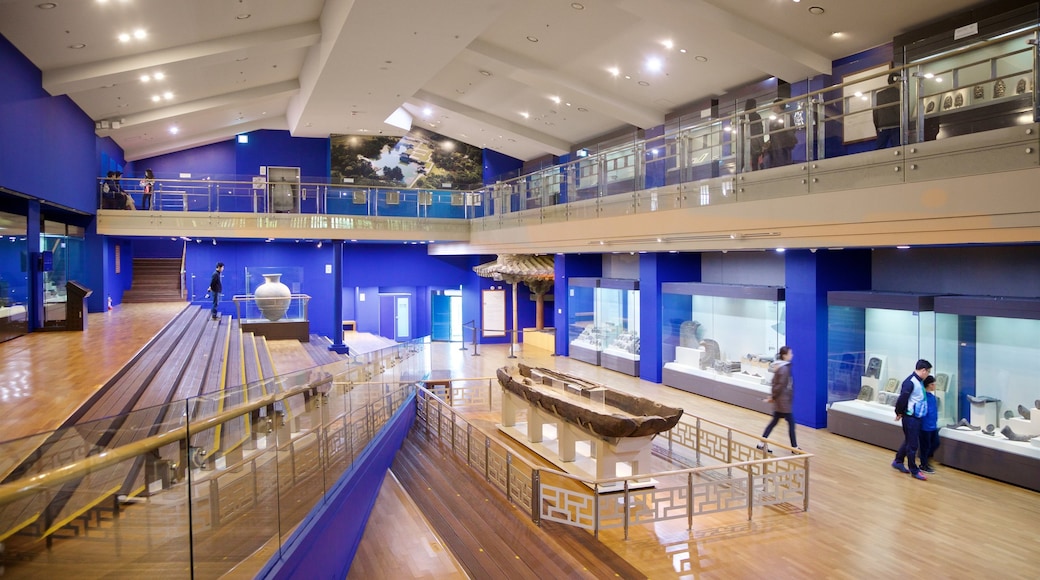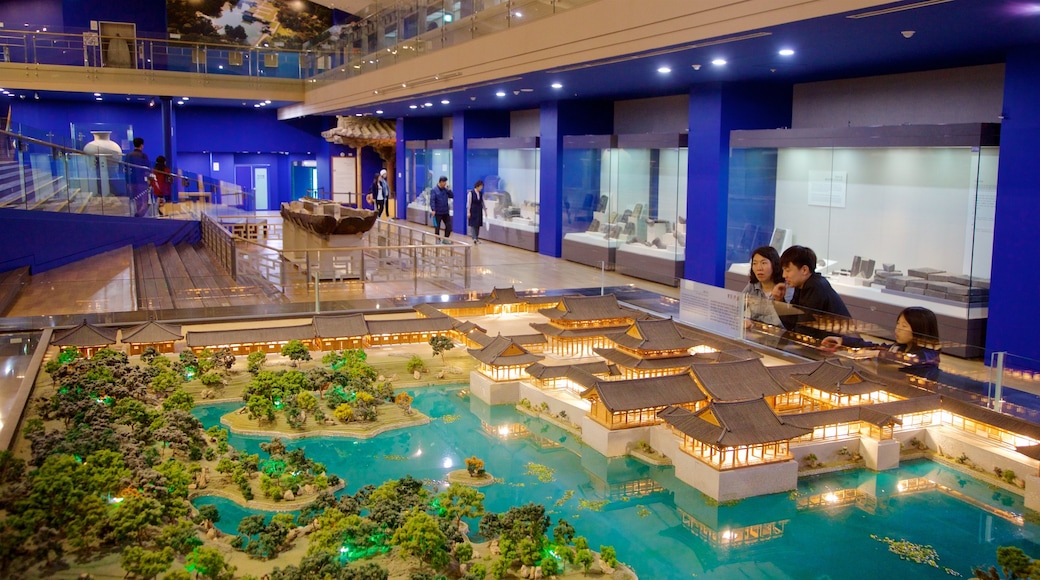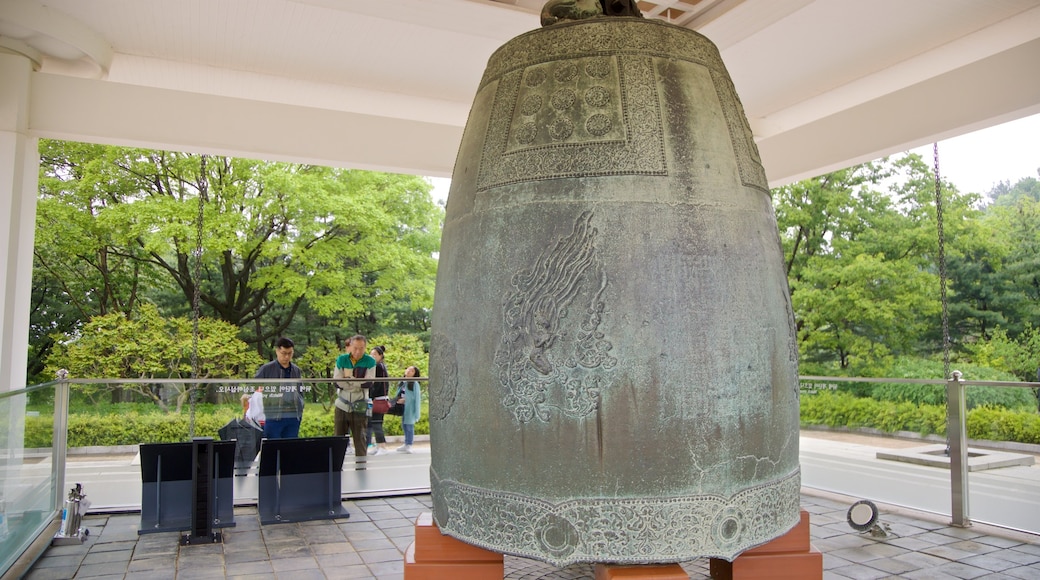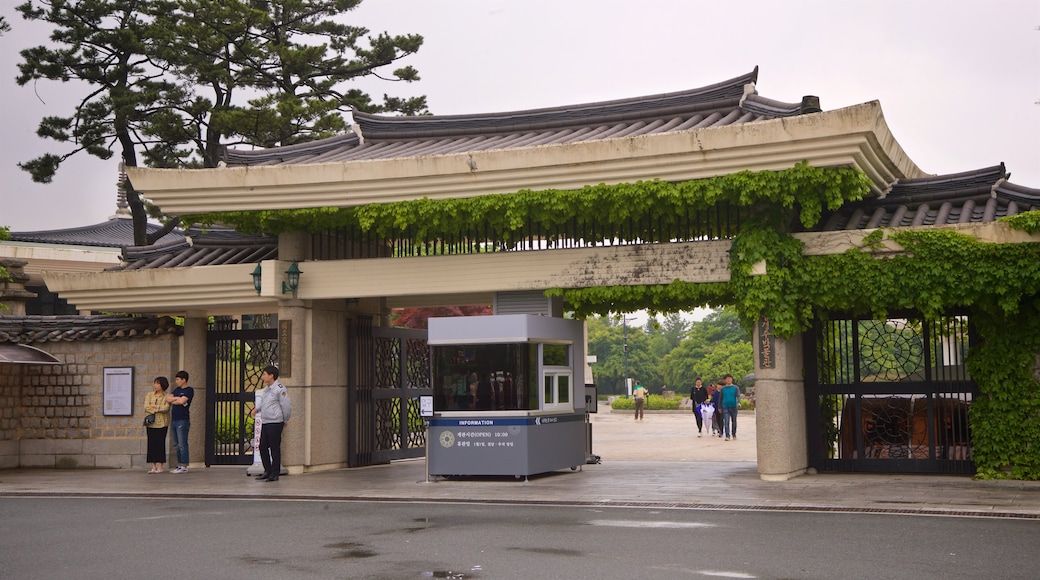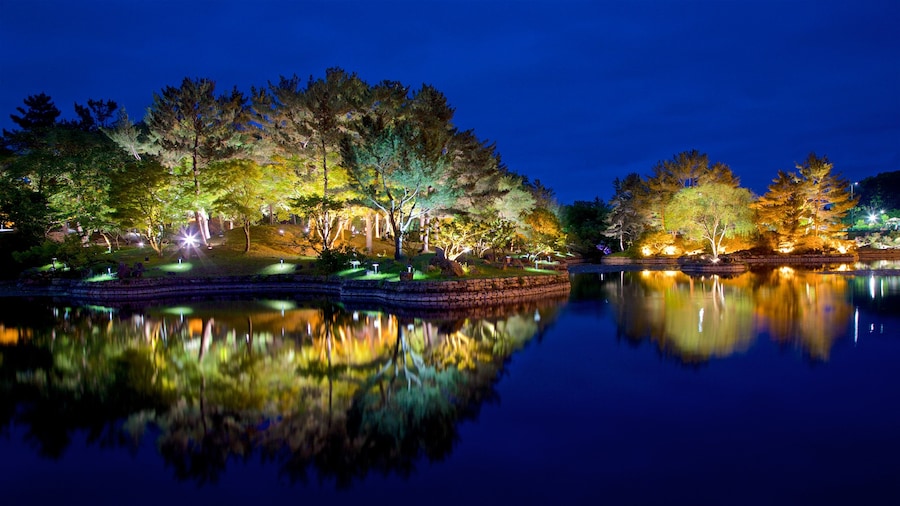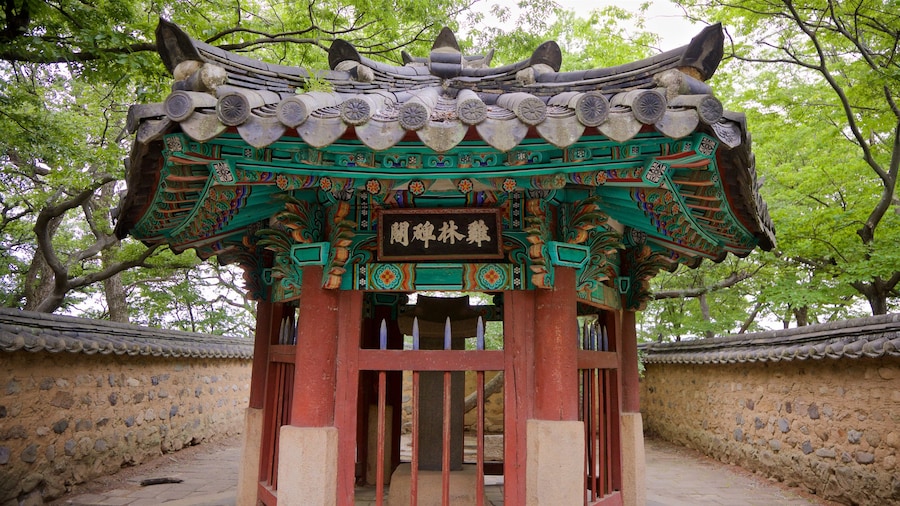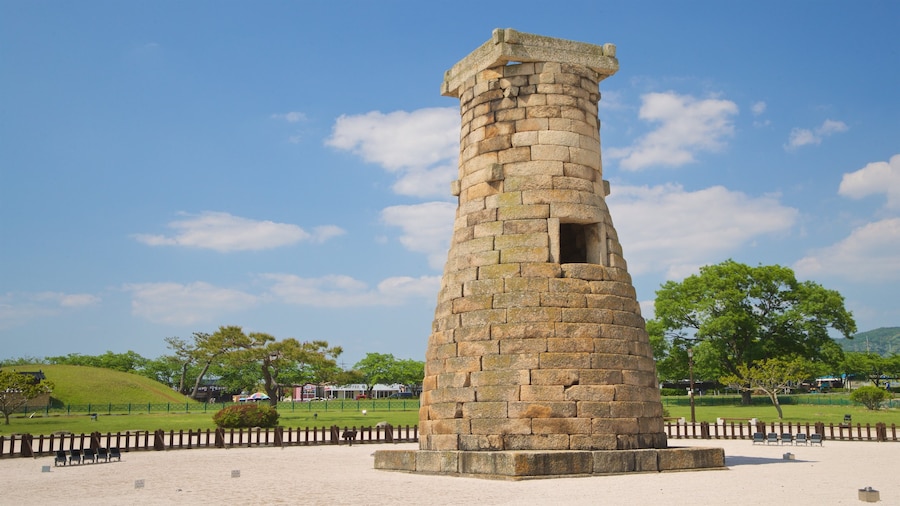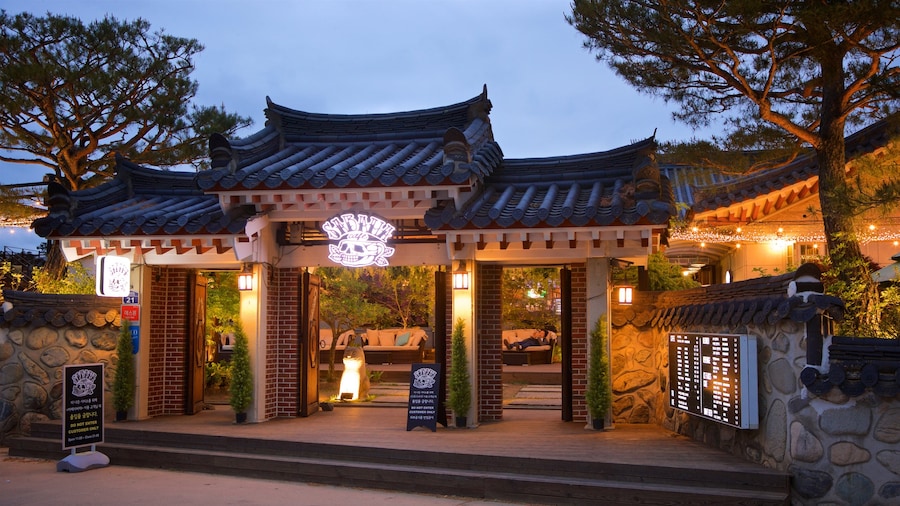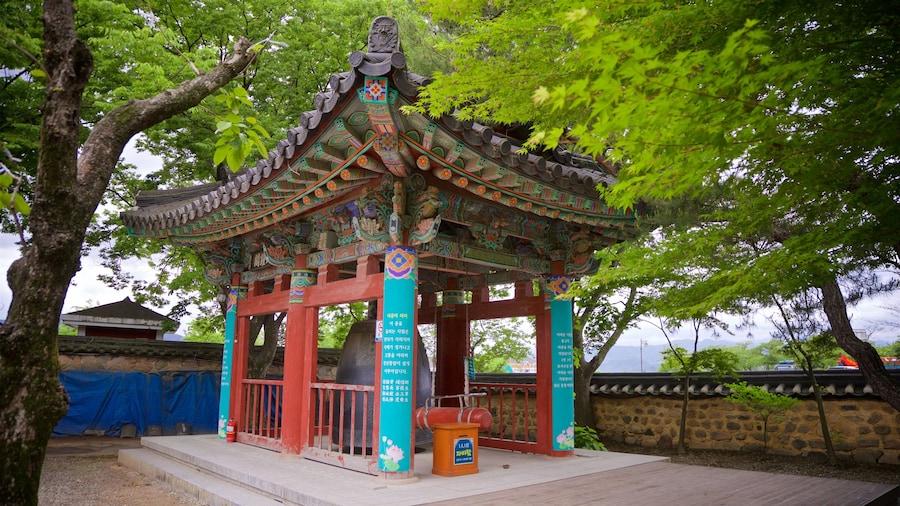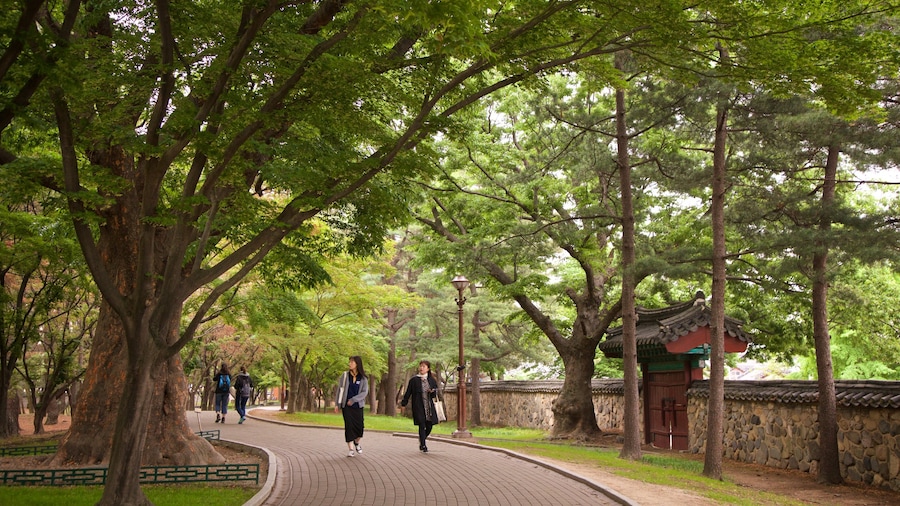Admire a treasure trove of precious relics from the Silla dynasty in the former capital of the ancient Korean millennial kingdom.
Take the whole family to the Gyeongju National Museum, where everyone can learn all about the era of the Silla kingdom. The on-site children’s museum will keep the kids happy while the adults browse the exhibitions in the main hall, the comprehensive Silla History Gallery.
As you browse the gallery in chronological order, you will learn that the Silla kingdom thrived from 57 B.C. until A.D. 935, mainly in the southeastern part of the Korean peninsula. You can even find older artifacts here, such as boats and oars, going as far back as 6,000 years BC.
Because Gyeongju was the capital of the Silla Kingdom, all the major palaces and castles were built right here. Some Silla relics go as far back as the 5th century, such as an intricately decorated gold crown from Gyo-dong and stone urns from royal burial mounds, the iconic “tumuli” of Gyeongju.
Many of the museum’s relics came from the Anapji Pond and Donggung Palace complex. When the pond was dredged for renovation works in 1974, so many precious relics were dug up that the collection could span an entire building, which was swiftly added to the museum. Find all those royal relics in the Wolji Gallery, with “Wolji” being the pond’s original name.
Back outside, admire the museum’s huge King Seongdeok’s Bell, which they claim was so well cast that its ring can be heard miles away even if you touch it gently.
The Gyeongju National Museum is open daily, generally from the mid morning until the end of the afternoon in winter. It stays open until the mid evening the rest of the year and on weekends and public holidays in winter too. The museum closes for the New Year’s Day, Lunar New Year's Day and the Chuseok (Korean Thanksgiving Day) public holidays.
Entry to the museum is free and parking is available on site. While there are English signs provided with the exhibits and you can also download the museum’s app, you get the most out of your experience if you tour the museum with an English-speaking guide. This service is provided for free on Wednesdays and Saturdays, with more tours run during the peak seasons.
